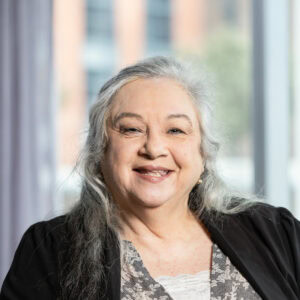Women’s month is an opportunity to acknowledge and celebrate the amazing contribution that South African women are making across every sphere of life. It is also fitting for it to be a time to mark a call to action for accelerating gender parity – particularly in sectors such as construction and the built environment, where imbalances are still notably apparent in this male-dominated terrain.
Perhaps more important than simply equalising the scales, World Green Building Council CEO Cristina Gamboa made the comment that better outcomes for women mean a better future for our planet: “Diversity and equality are inextricably linked to our mission to create green buildings for everyone, everywhere.” As a global network of around 70 green building councils working to eliminate carbon emissions by 2050 through transforming the building and construction sector, more than half of the CEOs are female.
We need collective action
Dorah Modise, CEO of the GBCSA, has been shaking up the green buildings movement locally for the past few years, increasing the number of certified buildings. She is now working with the public sector to develop and implement policy which would ensure net zero carbon, waste, water and ecology for all new builds. Further to this, she is also supporting those working in sustainable
development in other African countries, ensuring that protecting the environment is part of the solution. “We need collective action if there is going to be a win for the entire continent. It’s a tall order but I’m not going to give up,” she says.
It is perhaps this unique type of determination and zeal that makes women such a critical part of environmental transformation. As Yvonne Soh, Executive Director of the Singapore GBC says: “Women have a great propensity to think beyond ourselves, to think of others and our environment. We tend to be the ones who nurture the natural world and that makes us more than qualified to lead the fight against climate change.” Chile GBC CEO Maria Fernanda Aguirre Busto comments, “I think women are good leaders. Often our work is very structured; we are good at planning and organisation; we foster good relationships; we multitask and we can take a holistic approach to problem solving.”
We need change
But, as is often the perceived case in South Africa, Busto says that the society in Chile is very unequal with notable pay discrepancies between men and women. “In the built environment sector, women are often left in admin positions and not seen as decision makers. Women are constantly having to prove themselves; society asks more of you.” She relishes the opportunity to talk about gender balance, not just in terms of equal pay, but also challenging the culture that might hold women back, including long hours or inflexible working.
And where does that leave South African women, working in the property sector? As Gamboa says: “To prevent further devastating climate change, we need these passionate and dynamic women to inspire women around the world to take action. They are the catalysts for change we need to cut greenhouse gases and limit the planet’s rising temperature to 1.5 degrees Celsius.” If you’re in the sector and not yet playing a part in greening it, do consider the work of the Green Building Council and get in touch to find out how membership and training can transform your company, and, ultimately, the planet.



